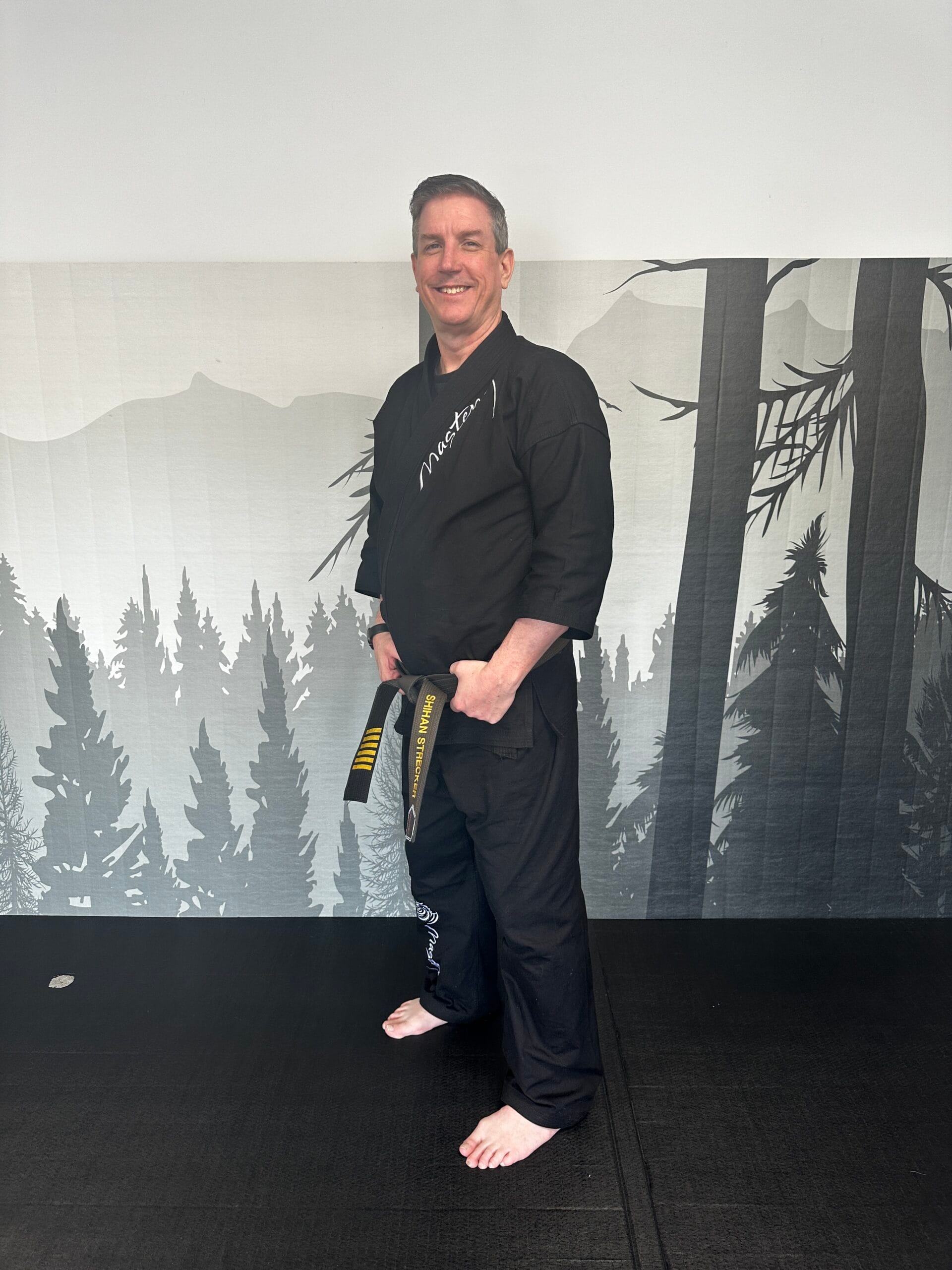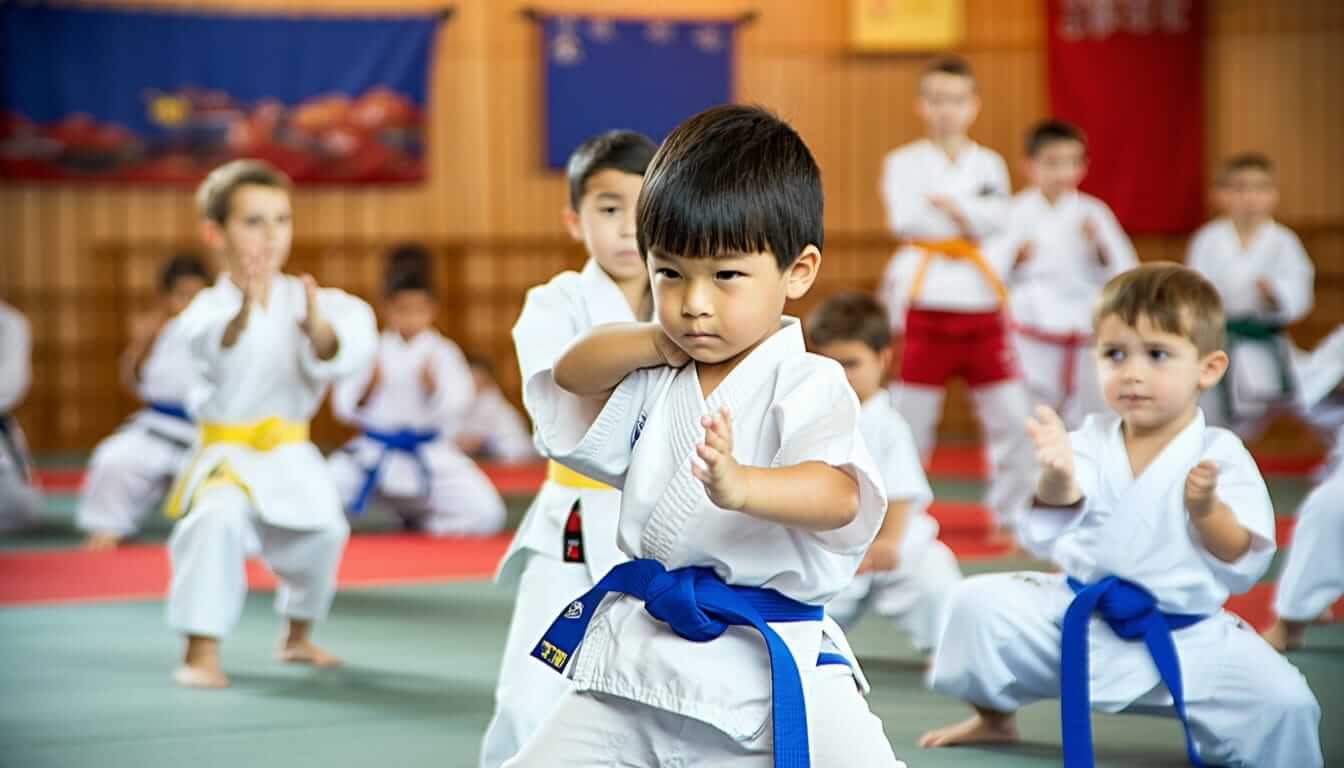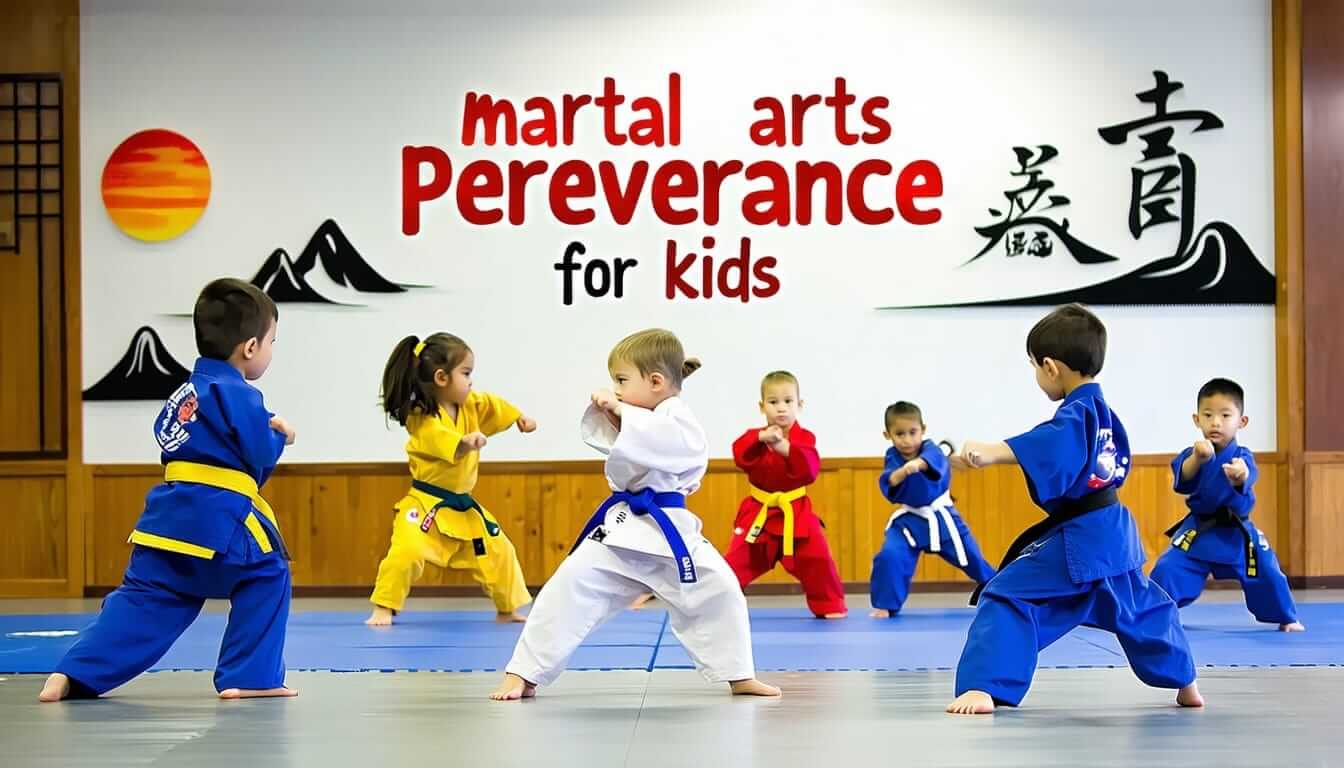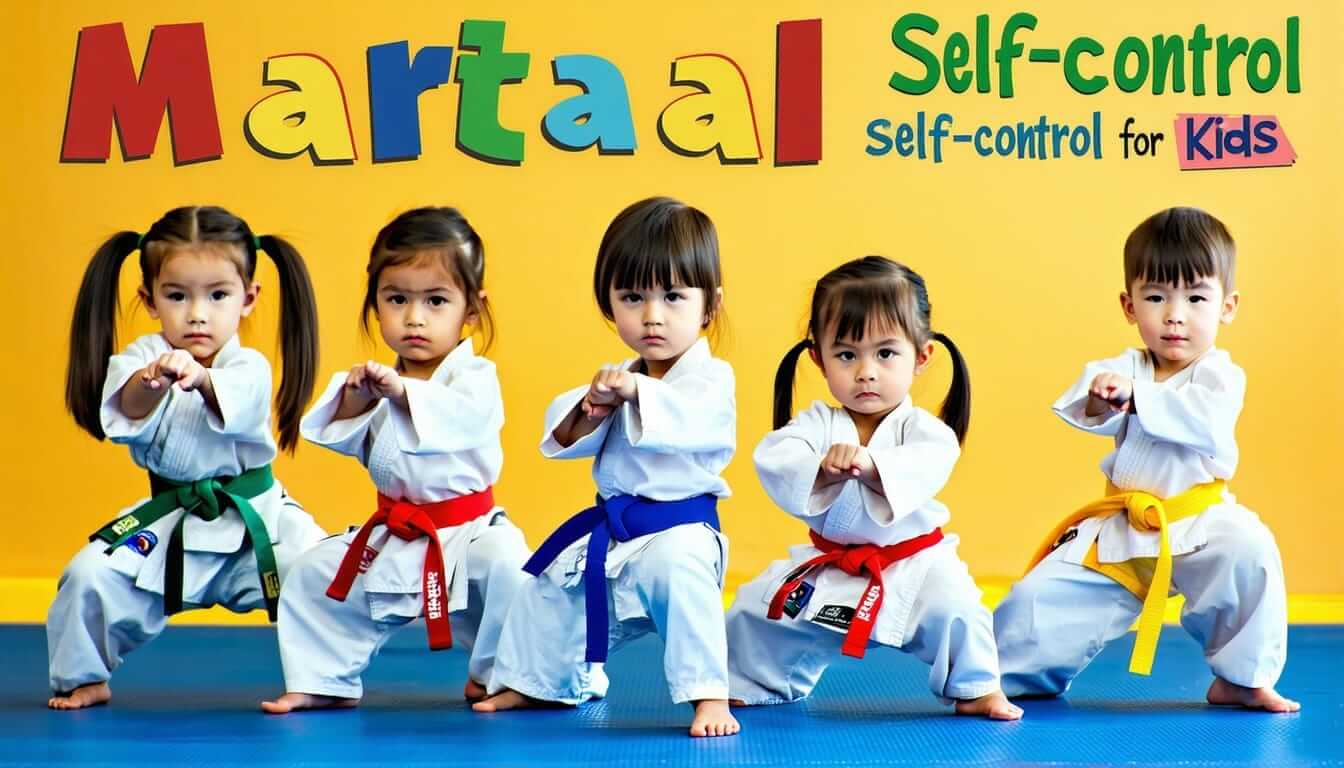Beyond physical fitness, you’ll find plenty of benefits of martial arts for kids, like respect, discipline, and teamwork.
Martial arts respect for kids can transform how your child interacts with peers and adults. If you want your 4–to 12-year-old in Royal Oak to develop lasting courtesy and self-control, structured training provides a proven path. Key takeaway (in brief), martial arts lays a solid framework where respect becomes a habit, not just a lesson. In this ultimate guide, we’ll explore the top benefits, class practices, and home strategies to reinforce respectful behavior. Good news, you can start seeing positive shifts before the end of your child’s first month.
Martial Arts Benefits
- Accountability and Courtesy: Children learn to respect their instructors and peers by following clear class rules and observing proper bowing rituals.
- Discipline and Self-Control: Regular attendance and focused drills teach kids that effort drives progress. Learn more in our martial arts discipline for children guide.
- Confidence and Self-Esteem: Mastering new techniques and earning stripes builds pride and a sense of achievement.
- Teamwork and Empathy: Partner exercises and group drills foster caring communication and mutual support.
- Patience and Resilience: Viewing mistakes as learning moments helps children develop a growth mindset and bounce back.
Training Builds Respect
When you enroll your child, structured lessons introduce respect in every session. Many of these principles are rooted in traditional etiquette and values (see martial arts values for children).
Structured Etiquette Practices
From the moment children step onto the mat, they follow rituals like bowing to instructors and fellow students. These small acts reinforce courtesy and show that respect is a two-way street.
Belt System Motivation
Earning a new belt requires consistent effort, which teaches kids that respect for the process pays off. Each milestone builds both skill and humility.
Peer Leadership Roles
Advanced students often guide novices, demonstrating techniques and offering feedback. Stepping into a mentor role boosts confidence and shows children how respect looks in action.
Growth Mindset Lessons
Instructors frame mistakes as chances to improve, so children learn to handle setbacks gracefully. This resilience translates into respectful behavior at home and school (for more on perseverance, see martial arts perseverance for kids).
Training Builds Respect
When a child steps onto the mat at Mastery Martial Arts, something remarkable begins to unfold—respect transforms from a lesson into a habit. From the very first class, structured etiquette becomes a cornerstone of every session, gently teaching courtesy through meaningful rituals like bowing to instructors and fellow students,
The belt system further reinforces this respectful mindset. As students work toward each milestone, they learn that modesty and perseverance are just as important as skill. The gradual process of earning belts sheds light on the importance of respect—not only for the training but for the journey itself.
Respect in class doesn’t stop there—it’s also about guiding others. As students advance, they step into leadership roles, demonstrating techniques for newer participants and offering encouragement. These peer leadership opportunities deepen their understanding of respect by modeling it for others.
A Real Story of Transformation
Consider Emma’s journey. Initially, respect was far from her behavior. She’d roll her eyes at chores, talk back at home, and resist authority at school—leaving her parent, Mark, drained from every day’s battles. But within weeks of her first class, Mark began to see a quiet shift. Emma started bowing when class began, greeting adults with “Yes, sir” and “Yes, ma’am,” and—most extraordinary of all—she ceased eye-rolling and began saying “please” and “thank you” at home without prompting.
Fast forward six months, and the change was unmistakable. Emma’s teachers noted her newfound thoughtfulness; she became more cooperative and kinder with her classmates. At home, she listened the first time, spoke gently, and even became a role model for her younger brother. As Mark puts it, “The respect Emma shows now isn’t forced—it’s genuine. She understands it, lives it…”
Reinforce Respect at Home
Classroom habits shine brightest when you extend them to daily life. Here are simple ways to build on what your child learns in martial arts.
Model Respect in Actions
Children watch how you treat others. Using polite language, listening attentively, and showing empathy at home reinforce their dojo lessons.
Set Clear Behavior Expectations
Agree on a few key rules like polite greetings or no interrupting. Consistent praise and gentle corrections help your child understand and meet these standards.
Celebrate Small Wins
Acknowledge moments when your child shows respect, such as helping a sibling or following instructions. Positive reinforcement makes good habits stick.
Plan Your Next Step
Choosing the right academy is your first move. Mastery Martial Arts, located just a short drive from Royal Oak in Troy, offers proven programs focused on building respect and positive habits.
- Visit Mastery Martial Arts: Schedule a free tour to see classes in action.
- Start With a Trial: Sign up online for two weeks free at www.KidsMartialArtsTroy.com.
- Observe a Class: Notice how instructors teach etiquette and courtesy.
- Support Daily Practice: Encourage your child to apply respectful words and actions outside the dojo.
You’ve got this. With consistent training and home support, respectful habits will become second nature for your child.





0 Comments